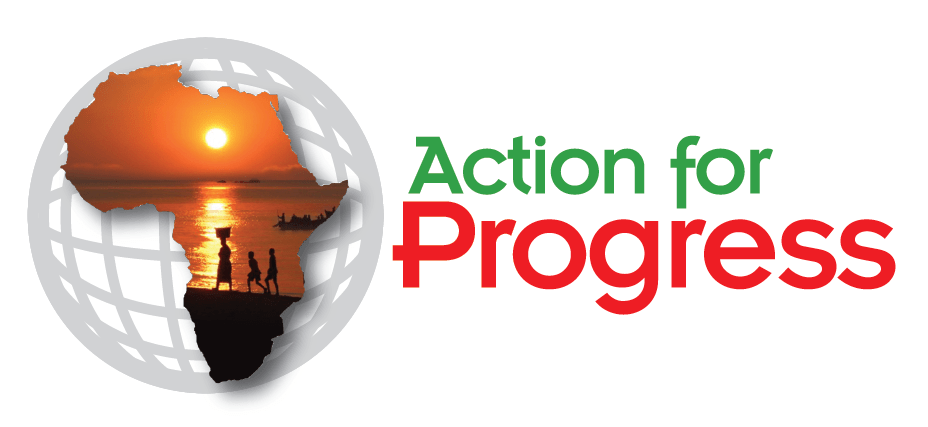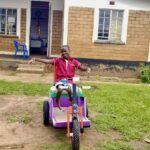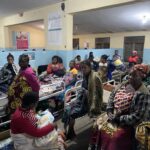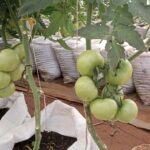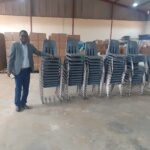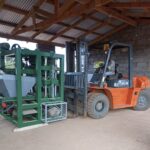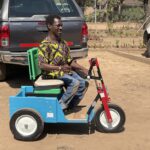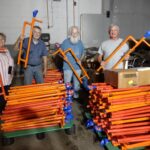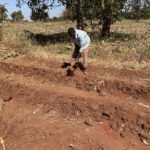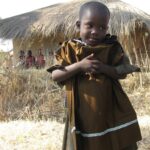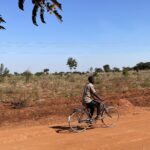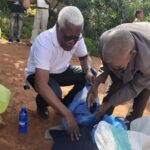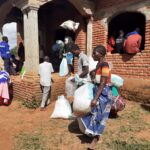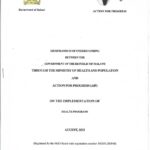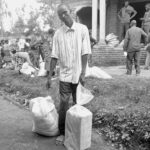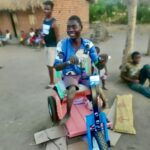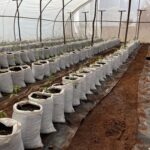New Malawian-run/chartered aid organization’s mission to create sustainable future for its people
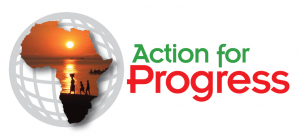
Established under the leadership of Wilson Tembo, in-country director for the Malawi Project, the AfP board is composed of business, medical, religious, and community leaders recognized for their focus on helping the poor, needy, and helpless members of society.
Bryan Bhagwandin, chairman of the Malawi Project in the U.S. observes, “The fact these two organizations have released the news about the establishment of ‘Action for Progress’ at the same moment, in spite of being 13,557 km or 8,424 miles apart did not happen by chance. In fact, it was planned that way to reflect that these two groups are companion organizations, both with the same focus and intent to help the poor, and both tightly structured to link together in a seamless program of cooperation. We are very pleased to see this respected and accomplished group establish this initiative to fill a needed area in administration and oversight. We look forward to working closely with AfP in a growing program of support to Malawi.”
Richard (Dick) Stephens, a co-founder of the Malawi Project, and strong supporter of Malawian independence in the oversight and execution of programs, is quite excited with the formation of this organization. He states, “This is the fulfillment of a 20-year dream to see the Malawians take responsibility for this effort to help their people. We know they will need our support, but this is a really big step in the right direction. We were deeply impressed when Wilson Tembo advanced the proposal to form AfP in mid-2017 and to create a Malawi administrative group to oversee the work.”
In recent years the Malawi government has increased its call for aid organizations working in Malawi to register with the government. Some aid groups extend their formal paperwork to register as an extension of their overseas operations, but the upper level management remains in the hands of out-of-the country personnel to the exclusion of local representation.
Stephens continues, “We felt to simply form an extension of our U.S. organization would prove counter productive to the independence of Malawians to grow successfully. The solution came with Tembo’s proposal. This structure will have Malawians taking full responsibility of their programs from top to bottom. The two groups, while independently chartered in their respective countries, will be working closely together because of similar, overlapping goals. This fits perfectly with a long-standing commitment to assist the people in the development of their own future through their own success. It is time for organizations from the developed world to stop going to Africa and maintaining control in the mistaken effort to solve ‘their’ problems. It is time to work together, with responsible Africans taking the lead.”
Wilson Tembo has worked with Malawi Project staff since its formation in 1999. He notes, “I know these people well, and for years I have overseen the work they support in Malawi. I have worked beside them and observed their practices and principles. I am walking that same path, and I share the same goals as the Malawi Project. We have had an excellent working relationship, and the formation of AfP is the way to move together into the future. It allows we Malawians to excel, as well as to be examples to others of how we should handle our responsibilities.”
Over the years the Malawi Project has carried out major efforts in agriculture, education and medicine. Suzi Stephens, co-founder and medical director observes, “In the past 25 years the Project has shipped over $220 million in aid to Malawi. Sending aid to over 600 medical facilities and 1,000 schools takes a lot of organizing to accomplish it effectively. Obviously, Wilson has been able to bring together literally hundreds of people in a network that has effectively and efficiently handled these programs. However, we see a major increase in opportunities coming in the near future, and it will take even more people to bring it about. AfP is the right answer at the right time.”
Chester Kabinda-Mbewe, a successful business administrator, church leader, and chairman of AfP adds, “All too often we have watched many organizations come to our country to help develop our future. Unfortunately, few have been able to develop a truly independent working relationship that fills the needs of both sides. We see in AfP and the Malawi Project the opportunity to prove that truly equal and independent groups can work together. The Malawi Project has used this formula for years, and now those of us at AfP can step forward and take this idea to a whole new level.”
For more information, please visit www.malawiproject.org/actionforprogress.
###
About Action for Progress (AfP)
A not-for-profit, aid assistance organization established under the leadership of Wilson Tembo, in-country director for the Malawi Project. The AfP board is composed of business, medical, religious, and community leaders recognized for their focus on helping the poor, needy, and helpless members of society.
Mission Statement:
"To actively be of service to all people as inspirational, working together to create improved living standards of the communities we serve," by working closely with government departments, churches and community groups in actively help people get on their feet through active participation in Health, Agriculture, Education and general humanitarian assistance.
About the Malawi Project
The Malawi Project is a faith-based humanitarian organization dedicated to working side-by-side with the people of Malawi to improve their physical and spiritual wellbeing. Assistance extends nationwide, and in some cases to other impoverished African nations. Programs are structured to help develop individual and group independence, and when this is not possible aid is given in a way that develops and supports local and regional management of the various programs. Programs focus in the areas of agriculture, education, medicine, mobility, famine relief, resource conservation, and human development potential.
The school year had just started. Children running, laughing, playing, sharing, learning. But along with the beginning of school had come the rains, the deluge […]
Read MoreThe teams from Action for Progress (AfP) and the Malawi Project (MP) traveled to the northwest part of Lilongwe District to distribute baby packs to many expectant mothers. The hospital […]
Read MoreDedza, Malawi… Action for Progress and the team from the Malawi Project reached the district hospital in Dedza later than expected. It was already dark, […]
Read MoreLilongwe, Malawi … The news has turned its focus to the 2024 U.S. presidential elections, the ongoing war in Ukraine, the impact of Russia’s cancellation […]
Read MoreLilongwe, Malawi … One of the foundation principles of both the Malawi Project and Action for Progress is to help the nation of Malawi become […]
Read MoreLebanon, Indiana … Two times in recent months the Methodist Children’s Home in Lebanon, Indiana donated unneeded chairs to Malawi. The first of these, a […]
Read MoreLilongwe, Malawi … “It just seemed to take forever,” reported Richard Stephens of the Malawi Project, in referring to the long-awaited transformer installation and electrical […]
Read MoreSalima, Malawi … This center for trade and commerce near the edge of Lake Malawi was once a notorious center for the trade of human […]
Read MoreLebanon, Indiana … With an influx of critically needed supplies for the people of Malawi the work at the Lebanon, Indiana warehouse has accelerated to […]
Read MoreLilongwe, Malawi … The sun is near the highest point in the sky. There is no relief from the heat, and it has been this […]
Read MoreLilongwe, Malawi … It has not been an easy problem to grasp, nor one with an easy solution, but it is no secret. Malawi is […]
Read MoreLilongwe, Malawi … In the poverty of Malawi, village families are at the bottom of the economic ladder. Entire villages may have no form of mechanized […]
Read MorePhalambe District, Malawi … In the far southeast corner of Malawi is the district known as Phalambe. It has a population of over 230,000 people […]
Read MoreThe bottom dropped out of the sky, and rain came down in torrents. For hours it poured. There were few places to which one could […]
Read MoreMulanje, Malawi … As the rains continued to come down in torrents, the houses, one by one started to collapse. As they did those inside, […]
Read MoreLilongwe, Malawi … The recent signing of a Memorandum of Understanding between Action for Progress and the Government of Malawi brings cooperation and understanding to […]
Read MoreHe related the story in words that seemed like fire burning deep in his heart. Few can ever imagine how he feels, or what this […]
Read MoreIn a country where almost half of the population is out of employment at any given time, what are the chances a school drop-out will find a job?
Read MoreLilongwe, Malawi … To help Malawi families with acceptable prices, as well as offset some of their administrative costs, ACTION FOR PROGRESS, with the help […]
Read MoreMitole, Chiradzulo District … Action for Progress continues to crisscross the nation assisting those with mobility problems. At its heart there are many life-changing stories. […]
Read More
